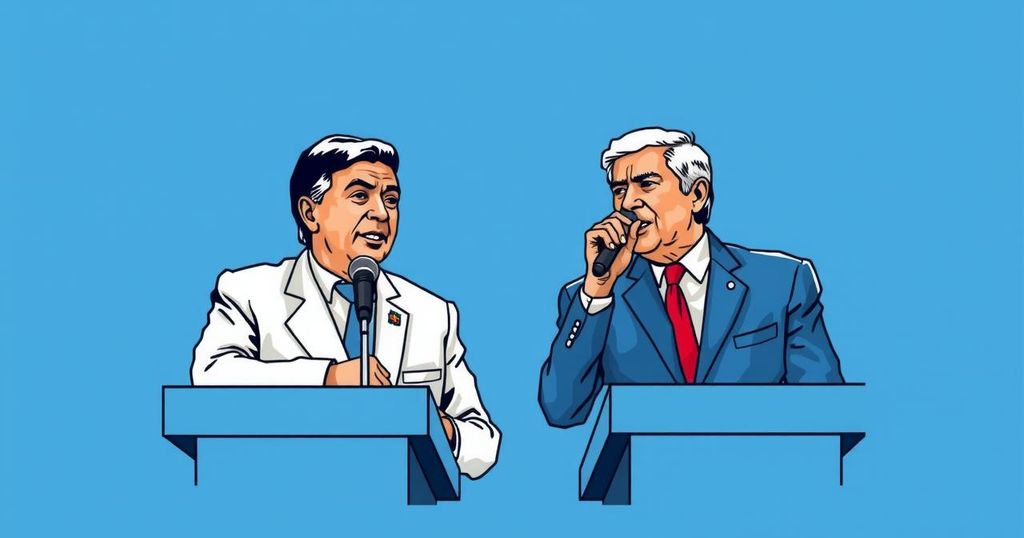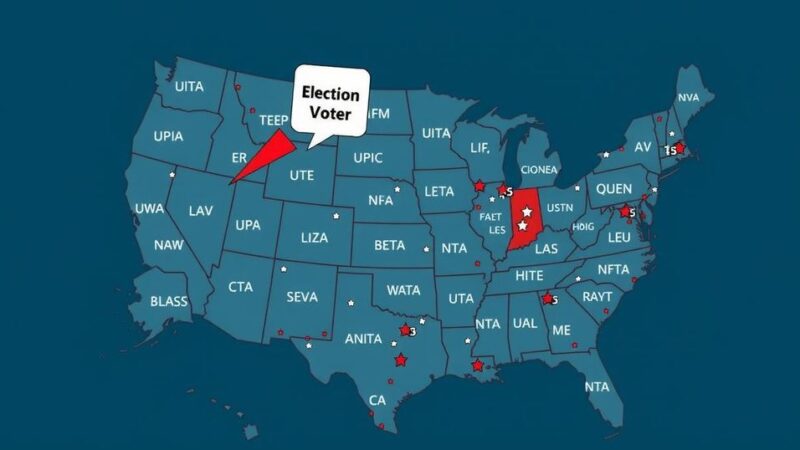Polling indicates that Uruguay is heading for a run-off presidential election, largely between center-left candidate Yamandu Orsi and center-right candidate Alvaro Delgado. Initial voting results place Orsi ahead with 43.2 percent of the votes, while Delgado secured 28 percent. Andre Ojeda finished in third place with 15.5 to 16 percent. The election diverges from broader Latin American trends, with a significant voter focus on rising crime, linked to drug trafficking, despite a generally favorable government performance under outgoing President Lacalle Pou.
Uruguay is poised to witness a run-off vote in its presidential election, as recent forecasts indicate that two leading candidates will compete for the presidency next month. The election, which diverges significantly from political trends observed in other Latin American countries, closed polling stations revealing initial outcomes that suggest a second round of voting is inevitable. The main contenders are Yamandu Orsi, a center-left candidate and former history teacher who currently serves as mayor, representing the Frente Amplio party, and Alvaro Delgado, a veterinarian representing the center-right Partido Nacional. Initial estimations by Equipos Consultores position Orsi as the frontrunner with approximately 43.2 percent of the votes, followed by Delgado with 28 percent. Andres Ojeda, a noted legal practitioner who has historically aligned himself with libertarian principles, has garnered third place, attaining between 15.5 to 16 percent of the vote. Prior polling suggested that no candidate was likely to secure the requisite 50 percent control needed for outright victory, thereby leading to the anticipated run-off.
This electoral process occurs in a nation recognized for its relatively stable political landscape compared to its neighbors. Uruguay, with a population of 3.4 million, saw voters also assessing two referendums aimed at lowering the retirement age and relaxing regulations for police night raids; early indications from exit polls suggest that these measures were rejected. In shaping the election, the electorate continues to express satisfaction regarding the government’s performance under President Luis Lacalle Pou, despite mounting concerns over crime rates associated with drug trafficking. The ruling conservative coalition has faced challenges in justifying its performance on this pressing issue even as it boasts other favorable economic indicators such as employment rates and wage levels. Furthermore, President Lacalle Pou, limited by constitutional stipulations against consecutive terms, has not personal aspirations in the current race. Should Orsi achieve victory, it would reaffirm a shift to the left in Uruguay’s political alignment after a term of conservative governance.
In conclusion, the Uruguayan presidential race is set for a captivating finale as the top candidates emerge from this election cycle. With significant public satisfaction pertaining to governmental performance juxtaposed with rising concerns over crime, the electorate’s choice will signal a distinct political trajectory. The impending run-off on November 24 will ultimately determine whether Uruguay continues its conservative governance or reverts to leftist ideals under Orsi’s leadership. This political shift, should it occur, would hold substantial implications for Uruguay’s future, particularly in addressing the prevalent issue of violent crime.
Original Source: www.aljazeera.com






